-
Content count
1,001 -
Joined
-
Last visited
Posts posted by NorthWide
-
-
Title: The Sun Smites The Earth.
Dedicated to my friend Daniel.
Ah the tent pegs of righteousness
How comely they are to the suffering,
The trodden down, those enduring the
Mandate of twisted up iniquity.
When they drive the temples of the unholy into the ground.
The sun, moon and stars fought against Babylon in their paths.
Their sand washed away for eternity.
For we rejoice in Babylon's destruction, driven into the dirt.
How they loved the donkeys, who's right hands were cut off. (Gen 16:12 / Micah)
The delusion of hardened hearts led to the destruction in the Red Sea.
Like the earth was formless and void, such is the end of every wicked tree.(group - see Psalm 37)
Amen
-
What aBout HeBrews 4;12?
'The word of Godis alive and exerts power, sharper tHan a two-edged Sword...
-
Can you talk about how your paths have helped you find real happiness?
-
1 hour ago, Sherman Krebbs said:One problem with quoting and attribution is that English is very imprecise. The same word can mean dozens or even hundreds of subtly different things, and some words are so abstract that their meaning seems to float off into infinity. In English, it is quite easy to equivocate on someone's meaning, or perhaps just misunderstand. I am personally of the opinion, however, that words are meaningless (and the fact that they can be coherently generated through AI seems to confirm my understanding), that they carry no more significance than the song of a garden bird, the harmonic relationship of one utterance to one-another being their only meaning in logic and understanding. We can build computer tools to better understand and simulate that harmony, but it cant scratch the surface of the feeling of gliding seamlessly on rollerskis across a newly asphalted biking path (or tai chi, or whatever). The wind against my body seems to be the only true reality.
Thats the real great mystery, its the forever in our minds, but the vastness... It keeps going and going...
-
1 hour ago, stirling said:It would make sense to include accuracy of quotes and attributions in that equation, wouldn't it? Misquoting seems pretty lazy when there is an actual quote tool built into the board, doesn't it? A misquote where the actual quote is literally inches away would garner an "F" in my estimation.
Misquoting happens most of the time, even on this playground.
Im not saying its ok. It just seems to often happen.
I realized a few years ago, yes I could just leave the Dao Bums, but then I would seem even more conceited and selfish than I was previously. AI images aside anyway.
-
-
Nungali, I just said in the screenshot that at John 10:34 he used the Greek word for Gods. Its in the screen shot.
Then you devolve into whatever lameass excuse you had before.
If Jesus used the term Gods, and Psalm 82:6 uses the word Gods.
NO. You will never, ever judge. It has to do with the dishonesty. no. and this is exactly why you will never judge. Nor will you be allowed to twist it. I am kinda sorry I ever met you.
-
 1
1
-
-
-
2 hours ago, Nungali said:There is a more direct relationship to other sources with the Psalms .
Just like your thread shows us an origin for the Noah story , many psalms can be compared with the original Egyptian .
Some psalms were said to be sung in Solomon's court or palace ( I am not sure if there was singing in the temple ? ) , it was part of the Egyptian rituals that these parts of the scripture seems to be drawn from ;
Harpist with percussion back up . The word appearing in Psalms - 'Selah' - is interesting to look up .
Comparisons with psalms and Egyptian hymns ;
https://www.thetorah.com/article/psalm-104-and-its-parallels-in-pharaoh-akhenatens-hymn
Papyrus rolls found in Tell el-Amarna revealed the full texts of more than a psalm of the Book of Psalms written in ancient hieroglyphs, and which preceded the Psalms of David written in Hebrew since more than 300 years. Together with historians from Berlin Museum, Egyptian Egyptologist, Selim Hassan, found three pages of Akhenaten's “The Great Hymn to the Aten” written to the sun-disk deity Aten, which were perfectly identical to those of the Books of the Torah, in spite of preceding the Psalms of David by more than seven centuries. They were inscribed on a right-side wall in Ay’s tomb at Tell el-Amarna, on 13 vertical columns at the entrance to the tomb.
https://www.egyptiangeographic.com/en/news/show/332
I cant totally agree, neither will I speak for others.
Hebrew for evil is Ra' or Ra'ah
There were numerous cultures since Sumer that demonized the culture they left. That I can agree on. However, since the past is distant, we are at the crossroads of what is Decided about the future.
Do we keep rewriting the past? Thats anxiety and pride.
The future? Thats depression.
The common thread in societies is slavery whether monetary/mental or physical. The only way to free oneself is to forgive others, God, ourselves and hold ourselves accountable. To be truthful as we possibly can. To build the kingdom.
Since Jesus uses the Greek word Θεοί - Theoi he meant Gods.
After the Ancient of Days (Jesus) sat down, only the righteous will judge and truth will prevail. Now, only the righteous will judge.
-
It seems to me I have come across believers the past five years that seem to have a few things in common:
1. They have a close personal experience with Jesus.
2. They start reading the Bible usually 4 or More pages daily.
3. They pray often.
4. They change according to what they learn.
5. They declare scripture when at odds with opposition.
So, it seems to me, Jesus is tired of people indoctrinating others, is choosing direct involvement.
Raham
-
 1
1
-
-
10 minutes ago, 心神 ~ said:Thank you.
I'm unclear on what this means. Can you elaborate?
—————
In your estimation, how does this relate to the creation stories of the Annunaki? That we are a genetically engineered slave race, saved only by the divine spark placed into us by our creator mother, Mami?
Do you believe Yeshua is Enki (Ea – Yah?), Lord of the Sweet Waters, Knowledge, Crafts, and Creation? (Yeshua – water, fish, age of Aquarius, carpenter, life bearer)
What does it mean to come to Christ? Most would say it is to recognize that he is God, but he declares himself to be the Son of God and when he speaks from the perspective of God, it is in the tradition of the prophets.
Thoughts?
John 14:12 uses meizona, μείζονα, or Megas in relation to those who would do greater things.
The annunaki are the stories from before the flood where humans even incorporated elements (huge idea concepts) within themselves beyond the Giants that existed.
They knew of giant Birds stored up for the final day of wrath the Ziz Saday. So, Bird imagery was totally Fresh in their minds.
To come to Christ, Means to totally renounce oneself, to die, and live in Christ, to loVe righteousness, kindness, to loVe God completely that Jesus Saves and to read at least 4 to five pages of the Bible every day to be sustained and to ask Jesus for guidance. To change and live with Jesus directing you personally. its a very personal experience.
-
20 hours ago, 心神 ~ said:I would be grateful for the direct quote and citation.
In John Chapter ten, Jesus claims that he will die. The pharasees claim he has a demon. He says he is the Son of God. They get ready to stone him. He Then Says:
34Jesus answered them, “Has it not been written in your Law : ‘I SAID , YOU ARE GODS ’? 35If he called them gods , to whom the word of God came (and the Scripture cannot be nullified ), 36are you saying of Him whom the Father sanctified and sent into the world , ‘You are blaspheming ,’ because I said , ‘I am the Son of God ’?
--John 10:34
Here Jesus quotes Psalm 82:6
'You are Gods'
"Let us make man in our image according to our likeness and have in dominion .. [everything on earth and the earth]"-- Genesis 1:26
It is clear that Adom (humans) are earthbound Gods, that recieve provision from God among other things. Adom has the same Creative and destructive power as God, although not all mighty.
What about evil? Evil recieves a reduced provision, dying in increments (Ezekiel "die until you are dead" idiom) much akin to a burning sensation, a fire that is not there.
Scripture and Holy Spirit convicts people in this. Declaration of scripture, yes.
12“Truly, truly, I say to you, he who believes in Me, the works that I do, he will do also; and greater works than these he will do; because I go to the Father. --John 14:12
Jesus made his followers "Mega" creatures much akin to Seraph (burning/holy) and Tannim (monsters). In this way we have access to angels of wonder like the old testament.
The reason Christians are waking up now is the Two witness Prophecy in Revelation. Zechariah speaks of the two Olive Trees, just as Revelation does. Now, since knowledge has increased we know now that trees represent GROUPS of people, in this case two groups. One is Christians (the bible Breathing non-indoctrinated kind) the other... is Jews that came to Christ.
This used to be an uncertain thing, but now that Christians are blessing, cursing those that cause evil, it is a done thing. This has already begun.
Psalm 37 (context)
1Do not fret because of evildoers,
Be not envious toward wrongdoers.2For they will wither quickly like the grass
And fade like the green herb.3Trust in the LORD and do good;
Dwell in the land and cultivate faithfulness.4Delight yourself in the LORD;
And He will give you the desires of your heart.5Commit your way to the LORD,
Trust also in Him, and He will do it.6He will bring forth your righteousness as the light
And your judgment as the noonday.7Rest in the LORD and wait patiently for Him;
Do not fret because of him who prospers in his way,
Because of the man who carries out wicked schemes.8Cease from anger and forsake wrath;
Do not fret; it leads only to evildoing.9For evildoers will be cut off,
But those who wait for the LORD, they will inherit the land.10Yet a little while and the wicked man will be no more;
And you will look carefully for his place and he will not be there.11But the humble will inherit the land
And will delight themselves in abundant prosperity.12The wicked plots against the righteous
And gnashes at him with his teeth.13The Lord laughs at him,
For He sees his day is coming.14The wicked have drawn the sword and bent their bow
To cast down the afflicted and the needy,
To slay those who are upright in conduct.15Their sword will enter their own heart,
And their bows will be broken.16Better is the little of the righteous
Than the abundance of many wicked.17For the arms of the wicked will be broken,
But the LORD sustains the righteous.18The LORD knows the days of the blameless,
And their inheritance will be forever.19They will not be ashamed in the time of evil,
And in the days of famine they will have abundance.20But the wicked will perish;
And the enemies of the LORD will be like the glory of the pastures,
They vanish—like smoke they vanish away.21The wicked borrows and does not pay back,
But the righteous is gracious and gives.22For those blessed by Him will inherit the land,
But those cursed by Him will be cut off.23The steps of a man are established by the LORD,
And He delights in his way.24When he falls, he will not be hurled headlong,
Because the LORD is the One who holds his hand.25I have been young and now I am old,
Yet I have not seen the righteous forsaken
Or his descendants begging bread.26All day long he is gracious and lends,
And his descendants are a blessing.27Depart from evil and do good,
So you will abide forever.28For the LORD loves justice
And does not forsake His godly ones;
They are preserved forever,
But the descendants of the wicked will be cut off.29The righteous will inherit the land
And dwell in it forever.30The mouth of the righteous utters wisdom,
And his tongue speaks justice.31The law of his God is in his heart;
His steps do not slip.32The wicked spies upon the righteous
And seeks to kill him.33The LORD will not leave him in his hand
Or let him be condemned when he is judged.34Wait for the LORD and keep His way,
And He will exalt you to inherit the land;
When the wicked are cut off, you will see it.35I have seen a wicked, violent man
Spreading himself like a luxuriant tree in its native soil.36Then he passed away, and lo, he was no more;
I sought for him, but he could not be found.37Mark the blameless man, and behold the upright;
For the man of peace will have a posterity.38But transgressors will be altogether destroyed;
The posterity of the wicked will be cut off.39But the salvation of the righteous is from the LORD;
He is their strength in time of trouble.40The LORD helps them and delivers them;
He delivers them from the wicked and saves them,
Because they take refuge in Him.Second Context: Daniel 7:22
22until the Ancient of Days (Jesus) came and judgment was passed in favor of the saints of the Highest One, and the time arrived when the saints took possession of the kingdom.
Also 25&26
. 25‘He will speak out against the Most High and wear down the saints of the Highest One, and he will intend to make alterations in times and in law; and they will be given into his hand for a time, times, and half a time. 26‘But the court will sit for judgment, and his dominion will be taken away, annihilated and destroyed forever.
SinCe only God sets times and law this person from the paSt would have insituted eVil law
Lets talk about emptiness. It allows us to be humble and to learn.
And praise Yahweh.
-
2 hours ago, Lairg said:Is it big enough to hold all the animals?
Yes. Here is the Crazy part, bears, grizzly bears, polarbears can interbreed and produce viable offspring.
All bees can.
Pigeons are Doves and seagulls interbreed with no trouble.
Donkeys and Horses are two different kinds, sterile offspring.
Horses and Zebras, yes.
Camels, llamas, Sheep are the same kind.
Rabbits and pigs are not. sometimes stillborn.
So, yes.
Its just that science tried to species each animal it found when animals have a "kind".
There might be a wondrous website somewhere where someone has documented what breeds successfully.
There are people on this forum that remember my obssession with Tannim (the wild, chaotic forms of animals and plants.)
Tannim literally means dragon, but also monster, these were the strong unkillable (unslayable) animals like the Hippo (need tank rounds, too much fat/armor, Aka Behemoth.
Leviathan, Aka Giant Squid (Jacque Costau searched for this) he sais the animal was too intelligent to be found.
I searched for the wild onion and found something out east, very strange, a desert cactus that makes you ?feel? invincible.
We didnt make things weak, we chose weakness. Instead of seeing that the Wild was good, we bred insufficentcy.
On the other hand the planet has a fungus problem, which could be solVed By ketoconazole 9% in shampoos and soaps.
As for the Gods, did you not read where Jesus says: 'You are Gods. Since it is already holy scripture, it cant be taken back.'
-
So, in present day Turkey... You can actually go visit where the Ark is buried... Now thanks to ground penetrating Xray tech they have actually found it. was constructed using lots of bitumen or pitch.
The measuremeNt Discrepancy is that a much longer cubit was used, closer to the egyptian cubit. Noah actually married Tubal-Cain's sister who was a Craftsman(Tubal-Cain was). After reading Genesis a few hundred times it makes sense.
Also atop a neighboring mountain is a tablet, that I think is now inside the nearby museum which depicts the family members, the Ark and a rainbow.
When I saw the post I could only think of that white tablet with their faces on it.
-
On 7/16/2025 at 9:05 PM, Taomeow said:18th-century European botanists named this Asian plant after the Bible’s Job due to its tear-shaped seeds. It was their poetic way to associate the shape of the seeds with tears, and tears with Job's suffering.
The name 薏苡 (Yìyǐ) has no link to the biblical Job — it’s a phonetic approximation of the plant’s ancient Chinese name.
The Divine Husbandman (神农 Shénnóng) is attributed in authorship to a group of gods prominent in polytheistic ancient Chinese culture. It is credited with introducing agriculture, herbal medicine, and the use of the plow to early Chinese civilization. Job, who lived at least 1500 years later, couldn't have written this text without the aid of a time machine. Besides, he was a wealthy herdsman (Job 1:3) and had nothing to do with agriculture, herbal medicine, and the use of the plow.
In this case, yes, she is right.
Job's Speeches in Job:
SpoilerJob’s Speeches: Job speaks in several chapters: 3, 6–7, 9–10, 12–14, 16–17, 19, 21, 23–24, 26–31, 40:3–5, and 42:1–6. I’ll focus on these to identify any references to planting.
Key Terms: Using Strong’s Concordance, I’ll look for Hebrew words related to planting, such as:
זָרַע (zara‘, Strong’s H2232): To sow or plant.
נָטַע (nata‘, Strong’s H5193): To plant or set (e.g., a tree or vine).
שָׁתַל (shathal, Strong’s H8362): To transplant or plant.
Related terms like “seed” (זֶרַע, zera‘, H2233), “root” (שֹׁרֶשׁ, shoresh, H8328), or “grow” (e.g., צָמַח, tsamach, H6779) may also appear in agricultural metaphors.
Context: I’ll check for both literal (e.g., farming) and metaphorical (e.g., planting as a symbol of establishing or creating) references.
Step 2: Analysis of Job’s Speeches
I’ll review Job’s speeches for any explicit or implied references to planting, using the NASB and Strong’s Concordance to clarify the Hebrew terms.
Job 3
Job curses the day of his birth, expressing despair. No references to planting or agriculture appear. Key imagery includes darkness (H2822, choshek) and death, not cultivation.
Job 6–7
Job laments his suffering and responds to Eliphaz. In 6:15–18, he compares his friends to a wadi (stream) that dries up, but this is about water, not planting. No agricultural terms like zara‘ or nata‘ appear.
Job 9–10
Job speaks of God’s power and his own helplessness. In 9:22–24, he discusses the earth given to the wicked, but there’s no mention of planting. In 10:8–12, Job describes God forming him (e.g., “made,” עָשָׂה, asah, H6213), but this is about human creation, not planting.
Job 12–14
Job 12: Job describes God’s sovereignty over creation (e.g., 12:7–10, animals and earth). No planting imagery appears.
Job 13: Focuses on Job’s defense and desire to argue with God. No agricultural references.
Job 14: This chapter contains plant-related imagery, so let’s examine it closely:
Job 14:7–9: “For there is hope for a tree when it is cut down, that it will sprout again, and its shoots will not fail. Though its roots grow old in the ground and its stump dies in the dry soil, at the scent of water it will flourish and put forth sprigs like a plant.”
Sprout (חָלַף, chalaph, H2498): To sprout, renew, or change, not planting but regrowth.
Shoots (יֹנֶקֶת, yoneqeth, H3127): Young shoots or branches, as in Job 8:16.
Roots (שֹׁרֶשׁ, shoresh, H8328): Root, as in Job 8:17.
Flourish (פָּרַח, parach, H6524): To bud or blossom.
Plant (לָטִיָּה, latiyyah, derived from nata‘, H5193): This is the closest reference to planting, but it describes the tree’s regrowth “like a plant,” not Job planting something.
Implication: Job uses a metaphor of a tree’s natural regrowth after being cut, not an act of planting. He contrasts this with human mortality (14:10–12), implying humans don’t revive like trees.
No explicit mention of Job planting anything.
Job 16–17
Job describes his suffering and God’s attacks. In 16:12–13, he uses imagery of being shattered or pierced, but no planting or agricultural terms appear.
Job 19
Job speaks of his alienation and God’s wrath. In 19:10, he says, “He breaks me down on every side, and I am gone; and He has uprooted my hope like a tree.”
Uprooted (נָסַע, nasa‘, H5265): To pull up or uproot, not plant.
Tree (עֵץ, ets, H6086): A tree, symbolizing Job’s hope.
Implication: This is the opposite of planting—Job describes his hope being torn out, not planted.
Job 21
Job describes the prosperity of the wicked. No planting imagery appears (e.g., 21:8 mentions “seed,” zera‘, H2233, but as offspring, not planting).
Job 23–24
Job longs for God and questions justice. No agricultural or planting references appear.
Job 26–31
Job 26–27: Job praises God’s power and affirms his integrity. No planting imagery.
Job 28: A discourse on wisdom, with mining imagery (e.g., 28:5–6, earth and stones), but no planting.
Job 29: Job recalls his past prosperity. In 29:19, he says, “My root was spread out to the waters, and dew lay all night on my branch.”
Root (שֹׁרֶשׁ, shoresh, H8328): Root, as in Job 8:17.
Spread out (פָּתַח, pathach, H6605): To open or spread.
Branch (קָצִיר, qatsir, H7105, contextually a branch): Typically “harvest,” but here likely a branch.
Implication: Job describes his former vitality like a tree with roots by water, but this is a metaphor for his stability, not an act of planting.
Job 30–31: Job laments his current state and defends his righteousness. No planting references.
Job 40:3–5 and 42:1–6
Job’s brief responses to God focus on humility and repentance. No planting imagery appears.
Step 3: Summary of Findings
Explicit Planting: Job never speaks of planting anything (e.g., sowing seeds, planting trees) in a literal sense. No instances of zara‘ (H2232), nata‘ (H5193), or shathal (H8362) appear in his speeches in the context of him planting.
Metaphorical Planting: Job uses plant-related imagery in two key passages:
Job 14:7–9: Describes a tree sprouting (chalaph) and flourishing like a plant (latiyyah) after being cut, but this is about natural regrowth, not Job planting.
Job 29:19: Mentions his “root” spread to waters, symbolizing past prosperity, not an act of planting.
Job 19:10: Refers to being “uprooted” like a tree, the opposite of planting.
Context: Job’s plant imagery is metaphorical, focusing on growth, vitality, or destruction (roots, shoots, trees), but he never describes himself or others planting anythingYahweh's Speeches in Job:
SpoilerGod’s Speeches in Job: God speaks directly to Job in Job 38:1–40:2 and 40:6–41:34, often called the “speeches from the whirlwind.” These chapters focus on God’s power, wisdom, and sovereignty over creation, using vivid imagery of nature, animals, and cosmic order.
Key Terms: I’ll look for Hebrew words related to planting, such as:
זָרַע (zara‘, Strong’s H2232): To sow or plant.
נָטַע (nata‘, Strong’s H5193): To plant or set (e.g., a tree or vine).
שָׁתַל (shathal, Strong’s H8362): To transplant or plant.
Related terms like “seed” (זֶרַע, zera‘, H2233), “root” (שֹׁרֶשׁ, shoresh, H8328), or “grow” (צָמַח, tsamach, H6779) may indicate agricultural metaphors.
Context: I’ll check for both literal planting (e.g., crops, trees) and metaphorical planting (e.g., establishing something). God’s speeches are poetic and focus on creation, so I’ll also consider botanical imagery that might imply planting.
Step 2: Analysis of God’s Speeches
Let’s examine Job 38:1–40:2 and 40:6–41:34 for references to planting or related imagery, using the NASB and Strong’s Concordance.
Job 38:1–40:2
God challenges Job’s understanding by describing His creation and control over the cosmos, earth, sea, weather, stars, and animals. Key passages with potential botanical references:
Job 38:25–27: “Who has split a channel for the flood, or a way for the thunderbolt, to bring rain on a land without people, on a desert without a man in it, to satisfy the waste and desolate land and to make the seeds of grass to sprout?”
Seeds (צֶמַח, tsemach, Strong’s H6779): To sprout or grow, related to צָמַח (tsamach), meaning to spring up or produce growth. Here, it’s literally “the sprouting of grass” (עֵשֶׂב, eseb, H6212, grass or herb).
Sprout (צָמַח, tsamach, H6779): To cause to grow or sprout, implying natural growth due to rain.
Context: God describes His provision of rain to make grass sprout in uninhabited lands, emphasizing His care for creation. The focus is on natural growth, not God planting.
Implication: While this involves vegetation and sprouting, it describes God’s role in enabling growth through rain, not the act of planting (zara‘ or nata‘).
Job 38:33: “Do you know the ordinances of the heavens, or do you establish their rule over the earth?”
Establish (כּוּן, kun, Strong’s H3559): To set, establish, or prepare, not specifically planting.
Implication: This is about cosmic order, not agriculture.
Job 39: No botanical references. Focuses on animals (e.g., goats, deer, wild donkey, ostrich).
Job 40:6–41:34
God continues challenging Job, focusing on His power and describing Behemoth (40:15–24) and Leviathan (41:1–34). Potential botanical references:
Job 40:21–22: Describing Behemoth: “Under the lotus plants he lies down, in the covert of the reeds and the marsh. The lotus plants cover him with shade; the willows of the brook surround him.”
Lotus plants (צֶאֱלִים, tse’elim, Strong’s H6628): A type of plant, possibly lotus or a thorny shrub, found in marshes.
Reeds (קָנֶה, qaneh, Strong’s H7070): Cane or reed, as in marshy areas (e.g., Isaiah 42:3).
Marsh (בִּצָּה, bitstsah, Strong’s H1207): Swamp, as in Job 8:11.
Willows (עַרְבֵי, ‘arbei, from עָרָב, Strong’s H6155): Willow trees by a brook.
Context: These describe Behemoth’s habitat, emphasizing God’s creation of environments where creatures dwell. The plants (lotus, reeds, willows) are part of the natural setting, not planted by God in the text.
Implication: No mention of planting; the focus is on existing vegetation as part of creation.
Step 3: Summary of Findings
Explicit Planting: God does not speak of planting anything in a literal sense (e.g., sowing seeds or planting trees). No instances of zara‘ (H2232), nata‘ (H5193), or shathal (H8362) appear in God’s speeches.
Metaphorical Planting: God’s speeches lack metaphorical uses of planting (e.g., establishing something as a plant). The closest references are:
Job 38:27: God causes grass to “sprout” (tsemach, H6779) through rain, but this describes natural growth, not planting.
Job 40:21–22: Mentions lotus plants, reeds, and willows as Behemoth’s habitat, but these are pre-existing, not planted by God in the narrative.
Context: God’s speeches emphasize His sovereignty over creation, including weather (rain) and natural environments (marshes, plants), but planting as an action is not mentioned. The focus is on God’s provision for growth (via rain) or creation of habitats, not the act of planting.
Step 4: Comparison with Job 8:11-17 and Job’s Speeches
Job 8:11-17 (Bildad): Bildad uses plant imagery (papyrus, rushes, a tree on a stone heap) to describe the wicked’s fleeting prosperity, with roots (shoresh, H8328) and sprouting (yoneqeth, H3127) but no explicit planting. Unlike God’s speeches, Bildad’s imagery is metaphorical and judgmental.
Job’s Speeches: As analyzed previously, Job doesn’t speak of planting but uses plant imagery (e.g., Job 14:7–9, sprouting tree; 29:19, roots by water) to describe vitality or loss. God’s reference to sprouting grass (38:27) is similar to Job 14:7–9’s sprouting (chalaph, H2498), but neither describes planting.
Contrast: God’s focus is on His creative power and provision (rain causing growth), while Job and Bildad use plant imagery metaphorically for human conditions. None explicitly mention plantingAnalysis of the Radicals in Yi Yi Ren:
SpoilerThe name Yi Yi Ren consists of three Chinese characters: 薏 (yì), 苡 (yǐ), and 仁 (rén). Each character has a radical (the primary component that often provides a clue to meaning or category) and additional components that contribute to its overall meaning or pronunciation.
1. 薏 (yì)
Radical: 艹 (cǎo, grass radical, Radical 140)
Meaning: The 艹 radical indicates that the character is related to plants, herbs, or grass. This is fitting for Yi Yi Ren, as it is a plant-based herb (the seed of Coix lacryma-jobi).
Role in TCM Context: The grass radical aligns with the herb’s botanical nature, emphasizing its use as a medicinal plant in TCM to drain dampness, clear heat, and tonify the spleen.
Other Components: The character 薏 is composed of the grass radical 艹 on top and the phonetic component 意 (yì, meaning "intention" or "idea") below.
Phonetic Clue: The 意 component provides the pronunciation (yì) and may suggest a conceptual association with the herb’s purposeful use in healing.
Combined Meaning: While 薏 itself is primarily a phonetic transcription for the herb’s name, the grass radical ties it directly to its plant-based identity, and the 意 component may imply the herb’s intentional therapeutic application.
Total Strokes: 19 strokes.
Cultural Note: The character 薏 is specific to this herb and not commonly used in other contexts, reinforcing its specialized role in TCM nomenclature.
2. 苡 (yǐ)
Radical: 艹 (cǎo, grass radical, Radical 140)
Meaning: Like 薏, the 苡 character uses the grass radical, further emphasizing that Yi Yi Ren is a plant-derived herb. The repetition of the grass radical in both 薏 and 苡 underscores the botanical significance of the herb in TCM.
TCM Relevance: The grass radical is common in many TCM herbs, signaling their plant-based origin and medicinal properties, such as Yi Yi Ren’s ability to address damp-heat conditions and support digestion.
Other Components: Below the 艹 radical is the component 多 (duō, meaning "many" or "abundant").
Semantic Hint: The 多 component may suggest abundance, possibly alluding to the plentiful seeds of the Coix plant or its widespread use in TCM for multiple conditions (e.g., edema, diarrhea, arthritis).
Phonetic Role: The 多 component also contributes to the pronunciation (yǐ), though the sound is slightly modified.
Total Strokes: 11 strokes.
Cultural Note: The character 苡 is rarely used outside the context of Yi Yi Ren, making it a specific identifier for this herb in TCM texts.
3. 仁 (rén)
Radical: 亻 (rén, person radical, Radical 9)
Meaning: The person radical 亻 typically relates to human attributes, actions, or qualities. In the context of 仁, it is paired with 二 (èr, meaning "two"), which may symbolize duality or balance, a key concept in TCM (e.g., balancing Yin and Yang). The character 仁 itself means "benevolence," "humanity," or "kindness" in classical Chinese, but in TCM, it often refers to the "kernel" or "seed" of a plant, especially in herbal names.
TCM Relevance: In Yi Yi Ren, 仁 specifically refers to the seed or kernel of the Coix plant, which is the part used medicinally. The use of 仁 in herbal names (e.g., Xing Ren for apricot kernel) highlights the seed’s role as the potent, life-giving part of the plant, aligning with TCM’s focus on harnessing vital essences for healing.
Other Components: The 二 component (two horizontal lines) may also evoke balance or the idea of a small, essential core (the seed).
Total Strokes: 4 strokes.
Cultural Note: The dual meaning of 仁 (benevolence and seed/kernel) reflects TCM’s holistic philosophy, where the herb’s physical seed is seen as embodying life-giving, nurturing qualities, akin to human kindness.
Synthesis of Radical Meanings in TCM Context
The radicals in Yi Yi Ren (薏苡仁) collectively emphasize its identity as a plant-based herb (艹 in 薏 and 苡) with a medicinally potent seed (仁). The grass radical (艹) in the first two characters ties directly to the herb’s botanical nature, while the person radical (亻) in 仁 underscores the seed’s role as the essential, therapeutic component, metaphorically linked to human vitality and balance. These radicals align with Yi Yi Ren’s TCM functions:
Draining Dampness: The herb is classified under "herbs that drain dampness," addressing conditions like edema and arthritis.
Clearing Heat: Its slightly cold nature helps clear damp-heat, as seen in formulas like San Ren Tang.
Tonifying the Spleen: The seed (仁) supports spleen function, aiding digestion and reducing diarrhea.
Expelling Pus: Used in abscess treatments, reflecting its ability to resolve internal imbalances.
The use of 多 (abundant) in 苡 may also hint at the herb’s versatility in treating multiple conditions, from digestive issues to cancer-related symptoms, as supported by modern studies on its anti-tumor properties.
Additional Notes
Phonetic and Semantic Balance: The characters 薏 and 苡 are primarily phonetic, chosen to transcribe the name of the Coix plant, but their radicals and components (艹 and 多) add semantic depth, linking to the herb’s plant-based abundance. The 仁 character bridges the botanical and therapeutic, emphasizing the seed’s vital role.
Cultural and Linguistic Insight: In TCM, herb names often combine descriptive radicals (e.g., 艹 for plants) with components that evoke function or cultural significance. The name Yi Yi Ren reflects both the herb’s physical form (seeds) and its therapeutic essence (nurturing health).
Caution: As with all TCM herbs, Yi Yi Ren should be used under professional guidance due to potential contraindications, such as avoiding use during pregnancyWestern Naming Origin:
SpoilerThe plant was named Coix lacryma-jobi by Carl Linnaeus in 1753, with “lacryma” (Latin for “tear”) referring to the tear-shaped seeds. The common name “Job’s Tears” likely draws from this tear-like appearance, combined with a Christian cultural association.
So. Yeah. It may not have been what I expected. But, after an analysis of the texts, it doesnt make any sense to continue. There is no metaphorical concept in hebrew that alludes to such things as planting... anything by Job or Yahweh in the book of Job.
Strong's Entry on lyyob:
Iyyob: JobOriginal Word: אִיּוֹב
Part of Speech: Proper Name Masculine
Transliteration: Iyowb
Pronunciation: ee-yobe'
Phonetic Spelling: (ee-yobe')
KJV: Job
NASB: Job, Job's
Word Origin: [from H340 (אָיַב - enemies)]
1. hated (i.e. persecuted)
2. Ijob, the patriarch famous for his patienceElsewhere the trust of the wicked are often spoken of as spiderwebs, something extremely researched. So, I was wrong about the subject, Job is not the writer as he existed circa 1500 bc or if we go by Talmud/Midrash references, 800 years before Yisreal's Exodus.
-
 1
1
-
-
Ok. Before Isreal
Givens:
1. Job wrote the Divine Husbandman (farmer) text, later incorporated into The Materia Medica. Reason: The only name reference is Yi Yi Ren (Job's Tears).
2. The chinese language itself has Biblical perspectives within it.
I get the distinct impression that Job had to be asian and it makes sense that he wrote Divine Farmer: "I will die in my nest and the dust will multiply my days."-Job 29:18?
So Jesus would be the third time, not the second attempt.
-
 1
1
-
-
On 4/24/2025 at 5:11 PM, Nungali said:The systems I outlined above eliminate that . If you draw in warm fresh air and expel warmed used air in a heat closed system, the moisture laden used or 'stale' air is expelled . the same way your house will not fill with moisture if air circulates around it from open windows .
Or your car heater .... drive around in the cold, your windows will 'fog' up Fog is water
 . put the heater on and fresh air is drawn in, warmed, circulates, picks up your 'breath moisture ..... and while it is suspended in the warm air is expelled out of vents from the interior .
. put the heater on and fresh air is drawn in, warmed, circulates, picks up your 'breath moisture ..... and while it is suspended in the warm air is expelled out of vents from the interior .
Me ? I get moisture and mold regardless ..... welcome to the rainforest !
Wow ! Since 'ever' I have never been able to find a pic online of this . It's the waterfall and escarpment opposite my place and the view from my garden - this shot is angled higher than I get from my place .
You have experiences with mold ?

Wow ! That dance crowd is having a great time !
W
😐
Yeah, It was people who had called us and had completely sealed around their windows and had water accumulation.
Then there was this guy who insulated and lived out of his van that we had to bring to the hospital. His van was full of black mold.
Somehow, I haVe this strange feeling that maybe, just maybe, there might be a possibility that you might not know what you are talking about. But, thats okay because I used to think people held themselves to the same standards.
E.g. In the past I used to respond with "I dont know, maybe salt for toothpaste alternatives due to flouride salts from plants or aquafers. The fact is I often admitted in circumstances that I was wrong. I can't do that in this post now, knowing what I know.
-
 1
1
-
-
On 4/15/2025 at 7:06 PM, Nungali said:One idea that is easy with a raised floor (on poles ) ; get an old solar water heating panel/s , put it down hill from the house and half way a storage tank , pipes running up to the house ( they can be plastic as its non consumable water
 ) and to and fro under the floor and then cover with insulation. Under floor heating . Recycle through panel and tank in day, and heat the water , cycle through tank and underfool at night .
) and to and fro under the floor and then cover with insulation. Under floor heating . Recycle through panel and tank in day, and heat the water , cycle through tank and underfool at night .
But this is good for climate here , not sure about yours - pipes would travel through the cold and loose too much heat ???
Snow drift ? What the hell is that !
 So there is a lot I would not factor in for your situation .
So there is a lot I would not factor in for your situation .
Sketches, blue prints and models ... invaluable !
Yes, they will need framework and fixing ... how windy does it get ? That can be a factor for securing windows .
Another hint if using ply ; put strips of wood on it at appropriate intervals and it gives the appearance of board and batten wall ; its heaps cheaper than real B&B and a better look than plain ply ;
Some type of underground 'heat pump; system .... it will draw in fresh air and warm it .
The farm down south I used to visit got VERY cold (for me ) . It had a great old school wood heater . The house was airtight . THis heater had glass panel doors at front , front loading with a side door for optional loading (larger logs ) and a cooking top , It had tubes at the back that went through the wall to the outside and sucked in fresh cold air . They passed through the heater and warmed the fresh air and vented it out the top of the heater , this went into the room and rose . As it cool it sank and pooled on the floor . The heater had a fire box air intake very close to the floor that flared out , like the end of a vacuum cleaner , sucking the cooled now stale air up, to feed the fire and expel it out the chimney . Sealed house , fresh warm air, no mold

 emoji house ?
emoji house ?
Then type on a lap top .... you are hard to read with all the Caps !
In colder climates, having everything sealed leads to condensation. Condensation is water. Water accumulation in such places leads to mold.
I havent Built a lot of houses, but I have had some experiences with that.
Im sorry I didnt reply back soon.
-
On 4/18/2025 at 10:47 AM, Cadcam said:I have to say, I'm experiencing a bit of jealousy today. I'm visiting family, who are all religious. I've thought long and hard, and studied quite a bit, but can't bring myself to believe in a religion. I'm aware of a God, but idk much more about it. Idk what it wants or what it does, but my religious family does, and I'm jealous. There's a certain power to understanding the world through the lens of religion, and it gives a supernatural strength to have that knowledge base, and to have a God to lean on. I don't have that.
Everybody says Im this or I am that.
Or even worse claims to be somethiNg they are not.
Worse still the implications of yadda yadda are entirely lost.
Well My dude, Ive Been theRe. Its actually More compliCated than wethink.
Rather than tell you the right way:
The buddhist will say:
Follow this to its conclusion becauSe you doNt want stuck energy.
A christian will say:
Oh thats bad.
In reality if thisis the case, its due to desires and crap. (The darKened mind/Reprobation)
What I am starting to find is that people are so quick to say:
Im going to heaven, or Im a dharma protector, or Im a Sadhak's Keen Sabacc, or Tar-Aid (which is like Kool-Aid but 1e10 Better)
When they dont really understand the complexities.
Elements, Jinn, Mountianous thoughtforms are generally neutral just like your emotions of being generally atheist are neutral. Atheism is just an element, like Feng Shui is, like Treenet (sanskrit: TenTru [urt-tree net-connected]) is.
Its the stuck stuff (taoist), what buddists call crystalization, what christians call strongholds, or fixation of focus on lower physical things and baser feelings of anger and retribution that keep us in our actions of same behaviors and outcomes daily.
After reading the Bible many Many tiMes... Mysticism is spirit skills.
Life and Death is in the power of the tongue (James)
Thoughts are not stored in the Brain.
(As they are spirits)
The word of God can be declared and angels must carry it out.
The triangular powers heavenlies, earth, sun-moon can Be Declared to fight for you.
There are many other hidden weapons.
The only forbidden thing is power that comes from demons (which is the actual witchCraft).
A Christian can Command any angel or Demon to Carry out a command with a righteous outcome.
So, eVerything being said:
Find out why you feel like that. Then see what youre ready for. Cause forcing stuff doesnt work very well. Fighting for or agaiNst tHings stops any change process
-
11 hours ago, Nungali said:... or just go 'Huf Haus' - they have been doing it for years and have some good designs ( German engineering
 ) ;
) ;
( This is a similar style to what I strive for here beautiful finished wood , lots of glass , neat shiny fittings , but after a LOT of hard work, various skills need and $$$$$$s but greatly cheaper than asking a builder to make a house like that .... to see a wall go in like this , with dressed and finished timber - and not have to do all that yourself AND make mistakes - and interior finish - and some even have the wall , roof and floor sections ready plumbed wired and with drainage
 , super easy , quick and $$$$$$$$$$$$$$$$$$s )
, super easy , quick and $$$$$$$$$$$$$$$$$$s )
Over the years I have come up with some innovative design features ( Including the blue prints and in some cases models - I highly recommend making a model !
Anyway, I won't go further now ; first the basics need addressing like location, environment , orienteering , capital , resources , etc.
[ I watched a Huff team from Germany assemble one in 4 days . The last part of the 4th day the house was finished but then they emptied the truck and cleaned it , went over the engine . Pulled all their equipment and tools apart and cleaned them, including their tool boxes , air blasted them out, washed all the tools, dried them and went over each one with an oily rag and repacked everything .... Germans ! Gotta luv 'em ! And that is the type of fastidiousness and pride they have to assemble your house . The owner of this one , a Brit was amused at all that and at end as they where departing he questioned them as to why they where worried . They were worried that they where not running ahead of schedule enough , any hold up on the trip could make them late back to home base in Germany . The Brit asked '' So ? " They replied , " Well, our boss will not be happy ! "
Brit ; " Yeah, so .... and then what ?"
Germans ; " .... he will not be happy . "
.... or , you could bet a builder from the UK


I like the pole construction idea...
Definately metal roof with soundproofing. Not going to go supersteep from the poles But enough to encorage the runoff into a reaserVoir pond with turbo snails Probably add some iNterMittent heat and assistwd heat for winter and some structure to passivly proteCt surfaces and moss during wiNter.
My latitude is 45.4647° N so the house will face south with large windows and add some front Japanese style archetecture to prevent driftiNg (snow).
Pond water will be treatedin the manner of the edomite city of Petra. Only because I spent my life learning that crap and how to move water without exCessive energy. ill add a huge garDen but most of it will Be douBle sCreened from view like JapaNeSe DeSign. The screen baffles will also divert runoff to the reservior.
Inside pipes Will be metal due to the additional PAW (cold atMospheric plasma) treatiNg the water. AnAnnnndd.. plastic Breaks down into bisphenols with plasma treated water which leads to cognitiVe DecliNe and death (PubMed).. so I treally hate plaStic like RIGHT NOW! 😡👺👹
So... now I just have to figure out how to Build it or Die trying.🤣😂😂🤣
But seriously, Ill probably uSe telephoNe poles for poles Cause their super cheap and alreaDy treated and usually super accessable and probably consult around until I find some really good iDeas. Obviously Im going to Need walls that Can hold windows and that wont work for the 3ply siDe insulation CeiliNg type tHiNg, exvept in places I might Be aBle to get away with it.
FiNally, it should be air tight, But airtight also means Mold. This time around buildiNg something I might try siliCa packs AND Alum since that dries tHe Sheet out of mold mayBe with a Built in periodic small ozone deViCe emBedded.. I dunno yet. Gonna see what I find.
Just did some sketches but it ends up looking like... um... a big grin literally.
(Its not easy for Me to type on a phoNe)
-
 1
1
-
-
The land I purchase will be just out of town, obviously privacy screen.
Years of rainwater harbesting and usiNg electrostatic to dc generators and other methods... Yeah thats too complex for most, using a poNd as a reserVior... Lets stick to discussing construction metHods.
-
I just realized that everytHing I had posted here had already been talked about.
Its all been done.
-
anybody eVer goNe the modular home route with SIP (prefabricated walls? ) Just ConsiDering this as a possibility. But it would Be niCe to know if anyBody has trieD this and what their results were.
Also looking into other sustaiNable House ConstruVtion methods if you guys have any suggestions
-

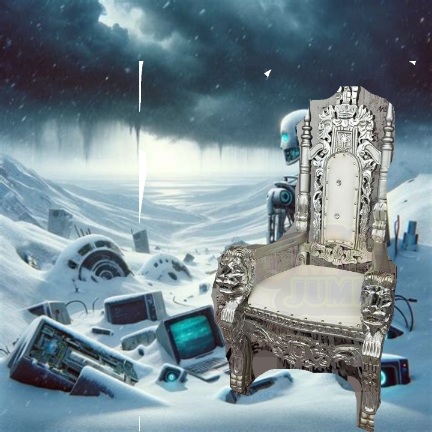

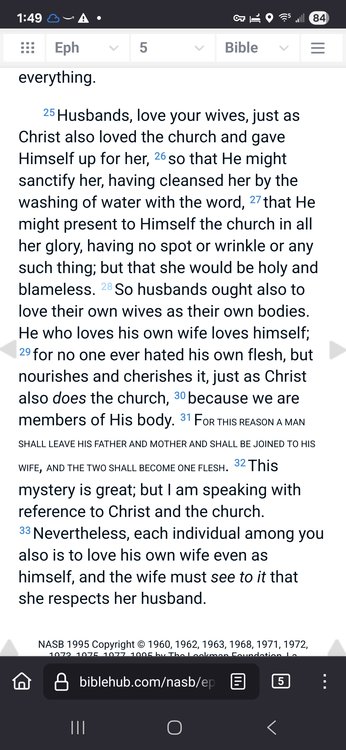
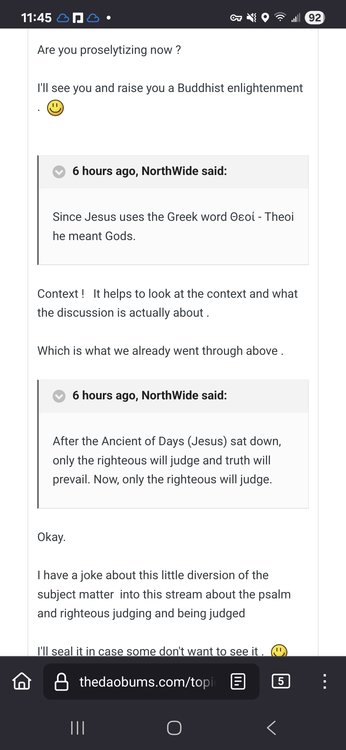
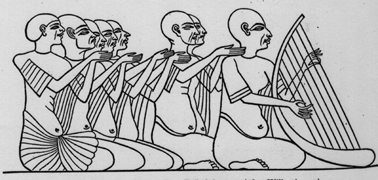

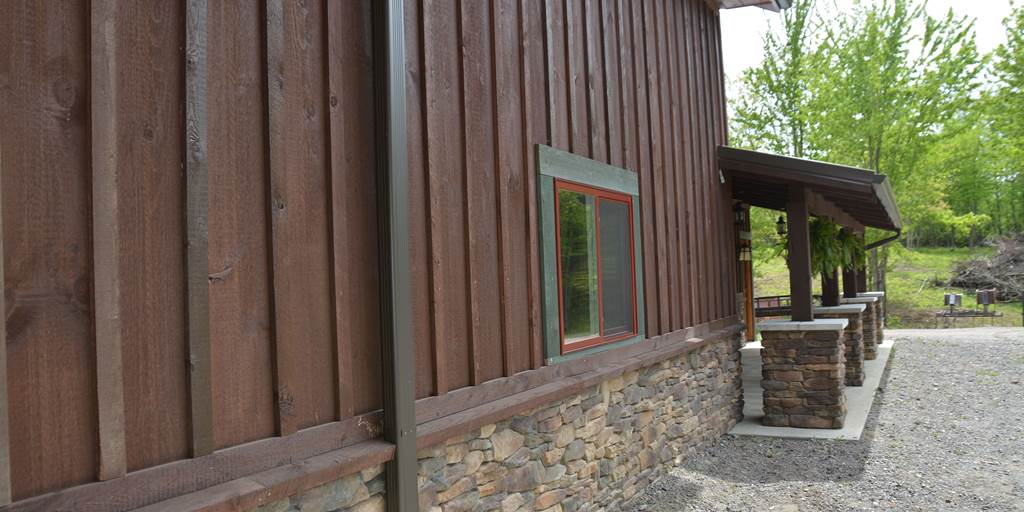
What are you listening to?
in The Rabbit Hole
Posted